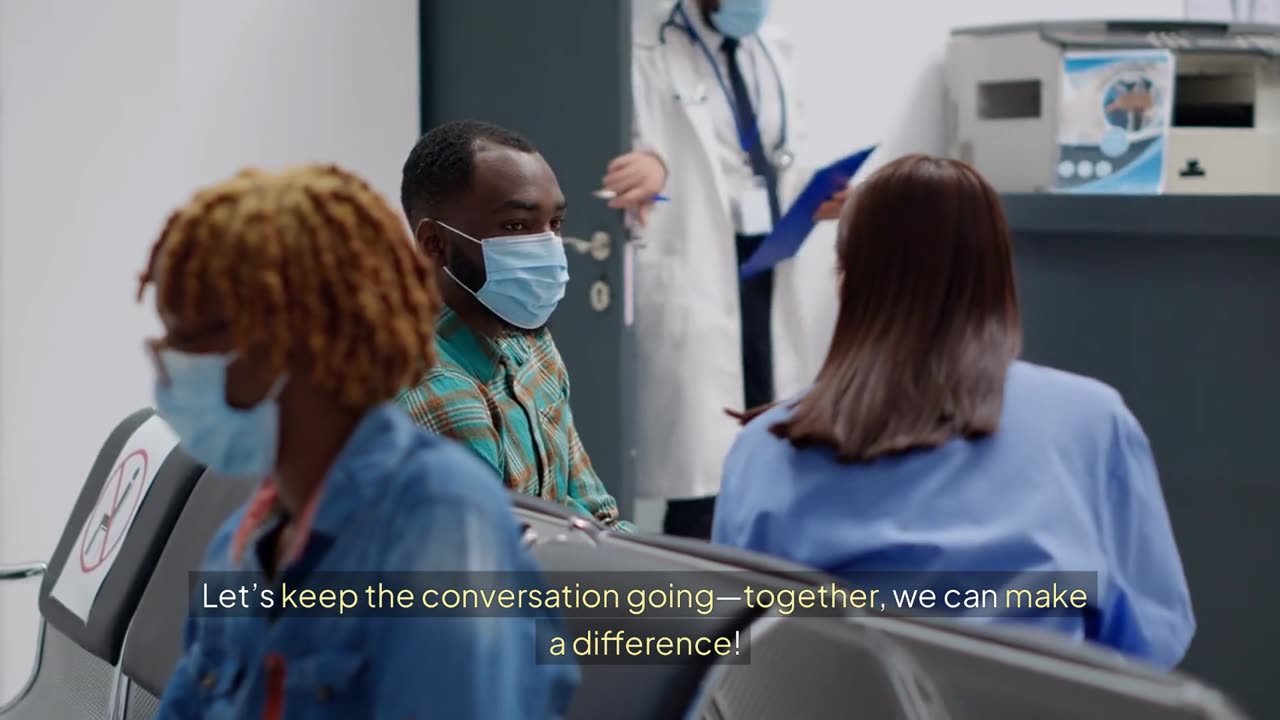Premium Only Content

Breaking Barriers: How New Rules Are Revolutionizing Organ Transplants for People with HI
**Title:** *
---
### **Introduction: A Game-Changer for Transplant Patients with HIV**
Imagine being on the waiting list for a life-saving kidney or liver transplant, knowing that time is running out. For people living with HIV, the situation has been even more dire, with limited access to donor organs due to outdated policies. But a new federal rule has changed the game.
Thanks to advances in medicine and a landmark decision by the U.S. Department of Health and Human Services (HHS), people with HIV can now receive kidney and liver transplants from donors who also have HIV—without the red tape of being part of a clinical trial. This policy shift promises to reduce wait times, expand the donor pool, and save countless lives.
Let’s explore how this breakthrough came to be, why it matters, and what it means for the future of organ transplants.
---
### **1. From Stigma to Progress: A History of HIV and Organ Transplants**
#### **The Dark Days of Stigma**
Not long ago, the idea of organ transplants involving HIV-positive donors was unthinkable. For decades, HIV was a death sentence, let alone a condition considered for complex medical procedures like transplantation. Until 2013, U.S. law outright banned organ donations from people with HIV due to safety concerns and stigma surrounding the virus.
#### **The HOPE Act: A Turning Point**
The tide began to turn with the passage of the HIV Organ Policy Equity (HOPE) Act in 2013. This landmark legislation allowed researchers to study organ transplants between HIV-positive donors and recipients. The first successful kidney and liver transplants under the HOPE Act followed in 2016, marking a pivotal moment in medical history.
The results were promising, paving the way for the recent federal rule that removes clinical trial requirements and normalizes these transplants.
---
### **2. Why the New Rule Matters: Saving Lives and Expanding Access**
#### **Addressing the Organ Shortage**
The United States faces a critical shortage of organs for transplantation. According to the Organ Procurement and Transplantation Network, more than 100,000 people are currently waiting for a life-saving transplant.
Allowing HIV-positive donors to contribute expands the donor pool significantly, giving more people a fighting chance. Carole Johnson, administrator of the Health Resources and Services Administration, emphasized the rule’s importance: “This new policy is a significant step forward in reducing wait times for life-saving organ transplants for people with HIV.”
#### **Faster Access for People with HIV**
People living with HIV often face longer wait times for transplants due to their condition. This new policy levels the playing field, allowing them to receive organs more quickly and improving their survival rates.
---
### **3. The Science Behind the Safety: Why It Works**
#### **Antiretroviral Drugs: The Game-Changer**
Modern antiretroviral therapies have revolutionized the management of HIV. These medications suppress the virus to undetectable levels, making it possible for people with HIV to live long, healthy lives.
This same progress extends to transplantation. Newer-generation HIV drugs have minimal interactions with the immunosuppressive medications required after a transplant, leading to lower rejection rates and improved outcomes.
#### **Groundbreaking Research**
Recent studies have confirmed the safety and efficacy of transplants involving HIV-positive donors. A landmark study published in the *New England Journal of Medicine* found that outcomes for kidney transplants from HIV-positive donors were comparable to those from HIV-negative donors.
Dr. Elmi Muller, a pioneer in this field, highlighted the implications: “The safety of organs from HIV-positive donors is no longer in question. Above all, we have taken yet another step toward fairness and equality for persons living with HIV.”
---
### **4. Real Lives, Real Impact: Stories of Hope and Resilience**
#### **The World’s First Living HIV-Positive Kidney Donor**
In 2019, an Atlanta woman made history as the first living HIV-positive person to donate a kidney to another person with HIV. Her courageous act not only saved a life but also shattered misconceptions about what’s possible for people living with HIV.
#### **Patients Who’ve Benefited**
Stories like hers are becoming more common. For individuals like these, the new rule means hope for a longer, healthier life and proof that a diagnosis does not define their future.
---
### **5. What’s Next? The Future of HIV-Positive Organ Transplants**
#### **Expanding Beyond Kidneys and Livers**
The current rule applies specifically to kidney and liver transplants, but the potential doesn’t end there. The National Institutes of Health is exploring expanding research to include heart, lung, and pancreas transplants involving HIV-positive donors and recipients.
#### **A Global Impact**
While the U.S. leads the way, this progress could inspire changes worldwide. As Dr. Muller noted, these advancements have “far-reaching effects in many countries,” creating new opportunities for organ donation and transplantation in regions still constrained by stigma or outdated policies.
---
### **Conclusion: A Milestone for Equality and Medicine**
The new HHS rule represents more than just a policy change—it’s a victory for science, fairness, and humanity. By removing barriers and embracing innovation, the U.S. is not only saving lives but also challenging the stigma that has long surrounded HIV.
This groundbreaking shift reminds us of the power of progress and the importance of treating every life with dignity and care.
If you found this article insightful, we’d love to hear from you! Share your thoughts in the comments below. And don’t forget to **like, share, and subscribe** for more stories about medical breakthroughs and the fight for equality in healthcare. Let’s keep the conversation going—together, we can make a difference!
-
 1:25:23
1:25:23
Kim Iversen
7 hours agoFrom Doctor to Political Prisoner: Dr. Simone Gold on COVID Lies, January 6th, and Medical Tyranny
67.6K50 -
 2:09:28
2:09:28
Melonie Mac
9 hours agoGo Boom Live Ep 39!
49.6K9 -
 1:04:36
1:04:36
Man in America
10 hours ago🚨 BREAKING: Dr. Robert Young JAILED! Medical Tyrants Will Do ANYTHING to Silence Truth
42.9K19 -

I_Came_With_Fire_Podcast
8 hours agoPanama CANAL BlackROCKED | Left of PODCASTING | Ukraine AID GONE
23.8K3 -
 45:56
45:56
Glenn Greenwald
8 hours agoLee Fang Reacts to Trump's Speech to Congress; Will DOGE Tackle Military Waste? | SYSTEM UPDATE #418
93.2K93 -
 43:23
43:23
Donald Trump Jr.
8 hours agoNo Clap: Dems are a Disgrace but My Father is Bringing Back Common Sense | Triggered Ep.222
138K115 -
 18:29
18:29
The Rad Factory
1 day ago $1.23 earnedBuilding Shred Eighty a Custom Honda Snow Kart
31.1K6 -
 UPCOMING
UPCOMING
Precision Rifle Network
1 day agoS4E7 Guns & Grub - What makes group size increase?
21.1K2 -
 46:29
46:29
SGT Report
1 day agoAMERICA IS BACK! BYE BYE IRS!! -- Sam Anthony
61.1K84 -
 8:56:13
8:56:13
Dr Disrespect
14 hours ago🔴LIVE - DR DISRESPECT - WARZONE - 150 PLAYER LOBBIES
181K20